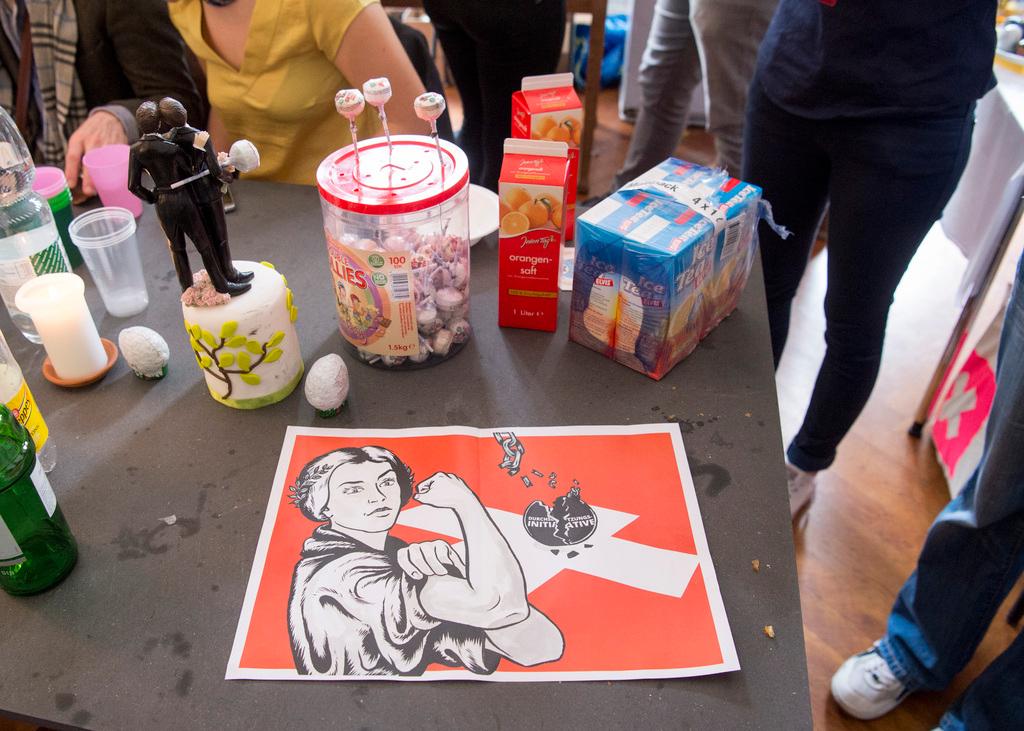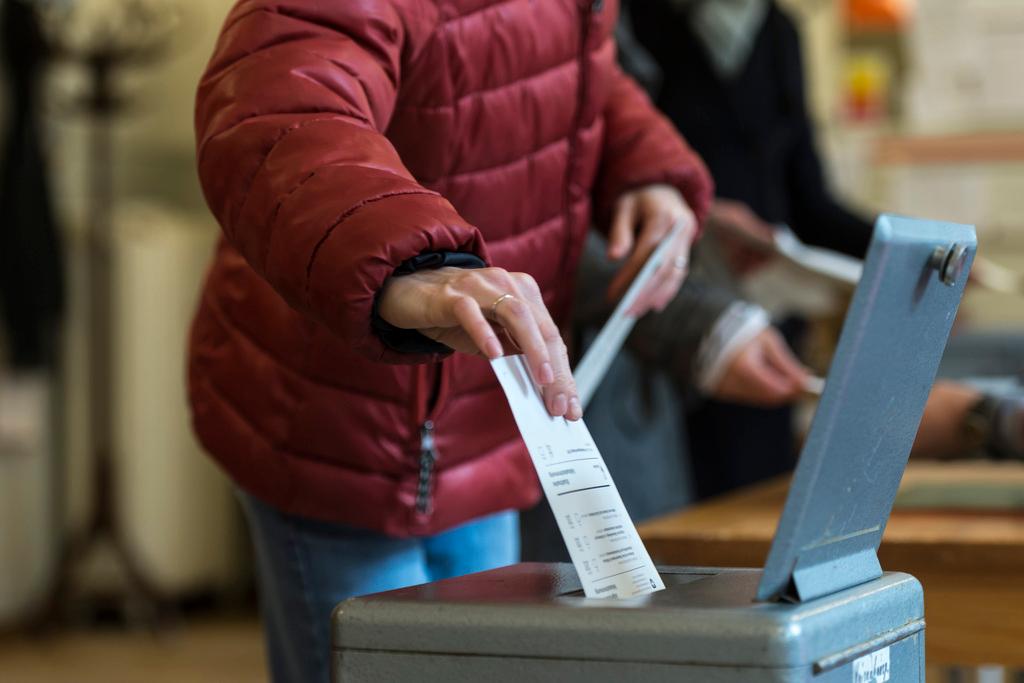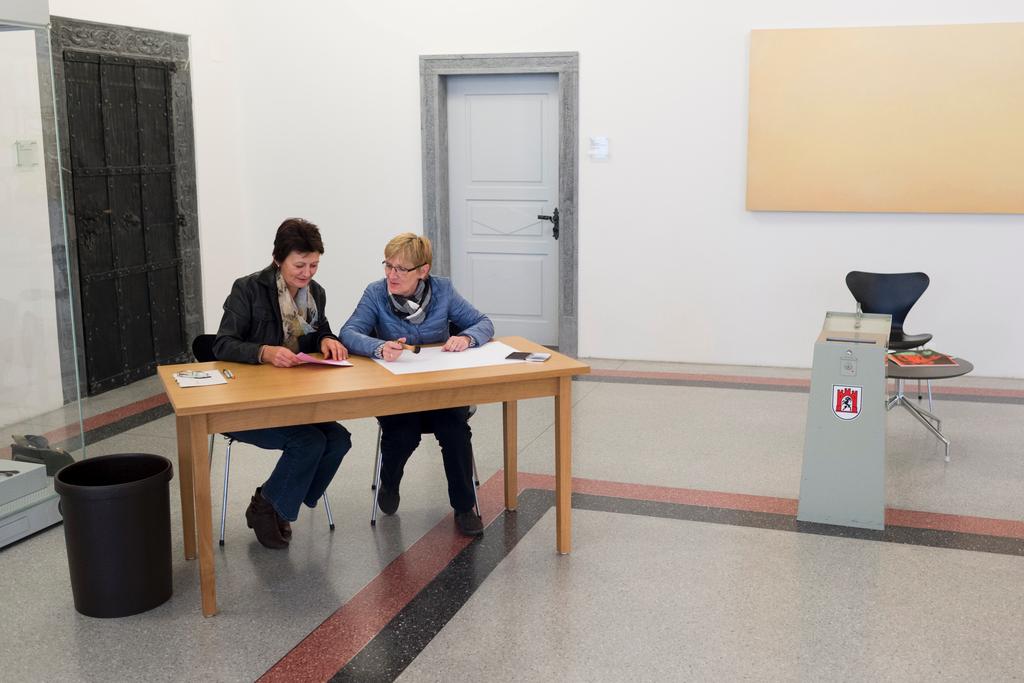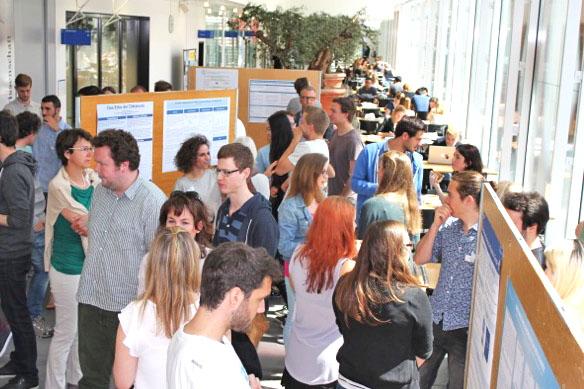‘The Swiss are not model democrats’

In a recent study, political scientist Simon Lanz found that more Swiss people vote than was previously assumed.
Indeed, some 90% of those eligible to vote cast a ballot. Very few, however, do so every time. The people who always vote tend to be politically well informed, Lanz explained in this syndicated interview with the newspapers, Tages-Anzeiger and Der Bund.
Felix Schindler: Your study found that only 10% of those entitled to vote in Switzerland never cast a ballot. Are we a country of model democrats?
Simon Lanz: No, the Swiss are not model democrats. In fact, voter turnout is low in Switzerland compared with other countries. Until now, the Swiss have been viewed as being politically disenchanted.
However, we have been able to show that only 10% of the electorate never votes within a five- to ten-year timeframe. In other words, 90% of voters cast a ballot. Not every time, but they do vote.

F.S.: Does this mean the people belonging to this 90% can theoretically be mobilised by Switzerland’s political parties? How do you get people to the polls?
S.L.: Selective voters are very sensitive to intensively conducted campaigns in the run-up to votes. The more intensive the campaign, the more people are mobilised. Captivating themes enhance this effect.
F.S.: Conventional wisdom was that voters could not be bought. Is this wrong?
S. L.: You can’t draw this conclusion from our study. We can say whether people vote or not, but we can’t make any assertions regarding their voting behaviour.
It is possible that people do vote as a result of an intensive political campaign, but their vote may differ from the position advocated by the campaign.
We know from previous studies that it is difficult to manipulate the electorate. Most people vote according to their personal preferences. For political parties, therefore, it’s more about bringing their supporters to the polls rather than trying to win over voters who think differently.
F.S.: You analysed data from Geneva. Is this data representative for all of Switzerland?
S.L.: In Geneva we tracked every voter and looked at whether they voted or not. Comparable data can only be found for the village of Bolligen, outside the capital, Bern, and the city of St Gallen.
We do know that voter turnout in the canton of Geneva is slightly higher than the rest of Switzerland.
But we are nevertheless confident that the main findings of our study are valid for the entire country: selective voters make up a large part of the electorate.

More
Votes that caused high voter turnout
F.S.: Selective voters have a similar political profile to those who abstain from voting. They aren’t interested in politics, know little about politics, and don’t support a particular political party. Does this mean that apolitical people decide nationwide votes?
S.L.: No, I wouldn’t say so. Political know-how varies from one proposal to the next.
It would be fair to say that only few citizens are familiar with all issues.
Our study shows that citizens tend to vote when they feel competent. For example, a doctor may vote on an issue concerning pre-implantation diagnosis but may opt not to cast a ballot for an aviation law.
F.S.: What do your findings mean for democracy in Switzerland?
S.L.: I would say the most important finding is that a pronounced political competence can have a positive impact on voting behaviour. The more a person knows about politics, the more frequently they vote.
This is a positive finding because we can influence this factor, for example through education about politics.
In light of this finding, it’s obviously not very helpful when financing is axed for institutions like Bern’s Käfigturm, the political forum that educates young people about politics.
F.S.: Only a tiny part of the population always casts a ballot. What do you make of that?
S.L.: Model democrats are few and far between. From the perspective of a democracy, it’s important for as many people as possible to vote on a decision that will impact them.
In Switzerland, often only half of the electorate casts a ballot. This means that a vote is decided by just a quarter of the population.
That’s without taking into account foreigners and minors. Increasing the number of people who always vote would have a positive impact.
This interview appeared in the Tages-Anzeiger and Der Bund newspapers on February 17, 2016.
Translated from German by Catherine McLean

In compliance with the JTI standards
More: SWI swissinfo.ch certified by the Journalism Trust Initiative





You can find an overview of ongoing debates with our journalists here. Please join us!
If you want to start a conversation about a topic raised in this article or want to report factual errors, email us at english@swissinfo.ch.